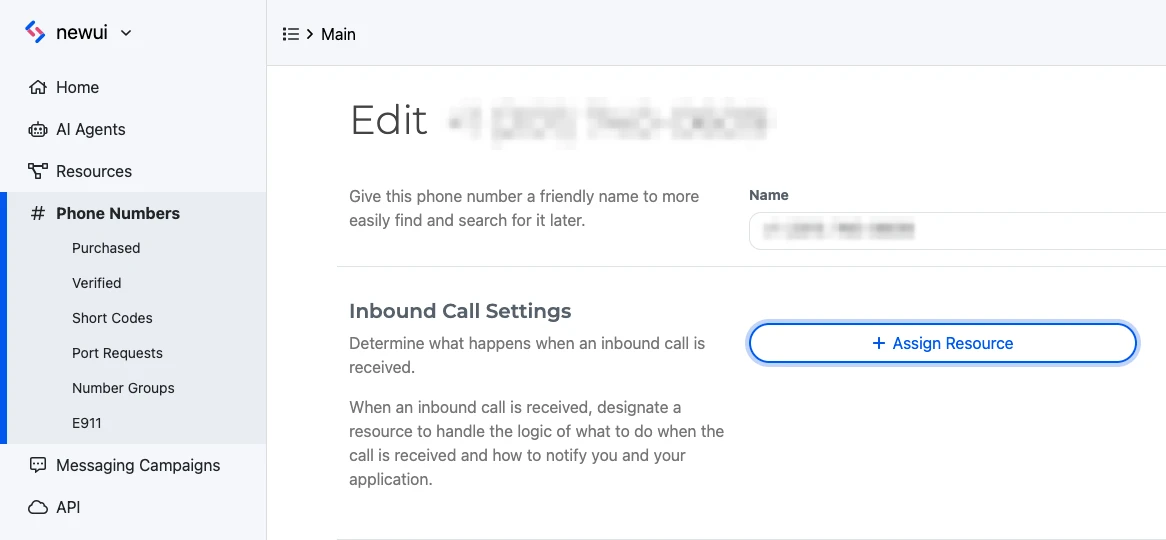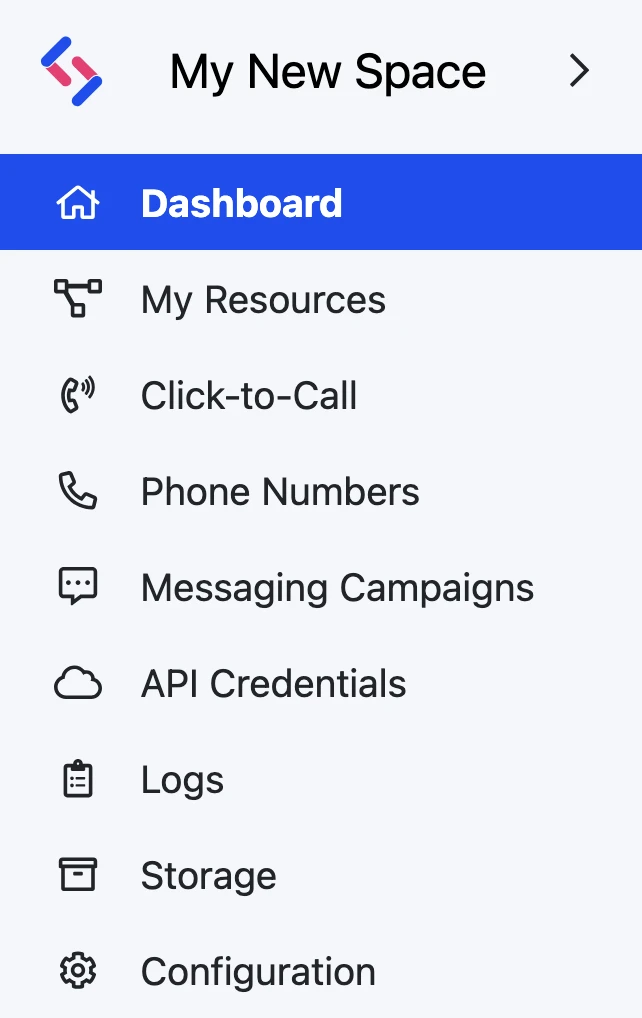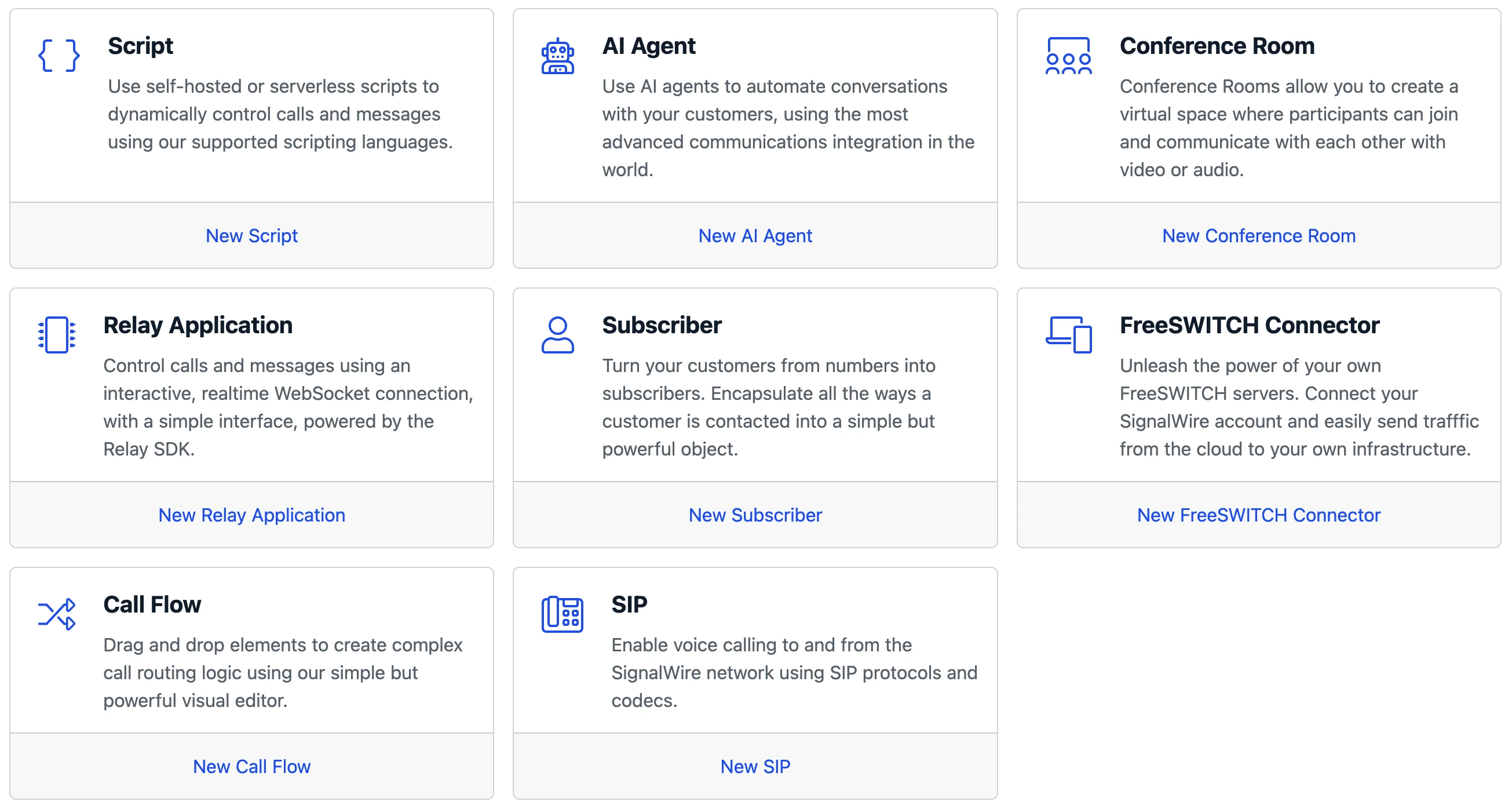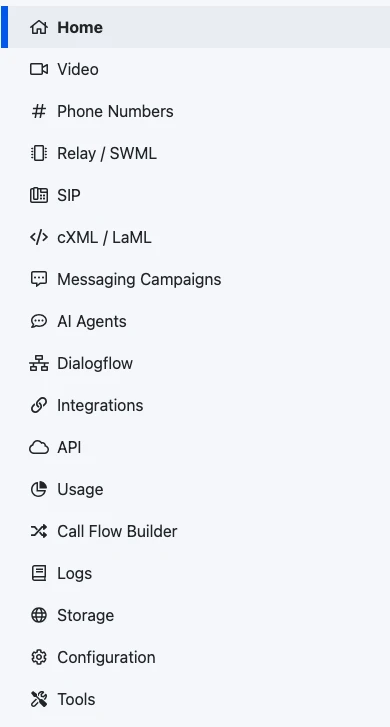Forwarding Calls
In Making and Receiving Phone Calls we learned how to use SWML and cXML to define what should happen when a call is received by one of your SignalWire numbers. In that case, we just played some audio. In this article, instead, we will use the same technique to forward the call to a different number.
SWML for call forwarding
We are going to define the forwarding instructions in a SWML Script hosted on SignalWire. To create a new SWML Script, navigate to the Resources section from your sidebar. There, create a new Script, and select the SWML Script option.
Creating your call forwarding Script
Once you are in the menu for creating a SWML Script, copy and paste the following Script:
- YAML
- JSON
version: 1.0.0
sections:
main:
- connect:
from: "%{call.from}"
to: "+15551234567"
{
"version": "1.0.0",
"sections": {
"main": [
{
"connect": {
"from": "%{call.from}",
"to": "+15551234567"
}
}
]
}
}
This Script will handle the call by making an outbound dial, setting the from address to be the address which created the initial call,
and then forwarding that call to the number specified in the to field.
You should replace +15551234567 with a real phone number, for example your personal one.
We used the connect method to call the number you would like the call to be forwarded to.
Notice how we used its from parameter to ensure that the number of the original caller
(stored in the call.from variable)
is maintained as caller ID for the forwarded call.
Assigning the Script to a SignalWire Phone Number
The final step is to configure one of your SignalWire phone numbers to answer calls using the SWML Script we just created. You can do that from the Phone Numbers section:

After clicking on the Phone Numbers section, click on the phone number that you'd like to assign, then click edit settings. From there, click Assign Resource and assign the newly created SWML Script. Now any calls that are routed to that number will be forwarded, with the caller ID being the original number that called in.
cXML for call forwarding
We are going to define the forwarding instructions in a cXML Script hosted on SignalWire. To create a new cXML Script, navigate to the Resources section from your sidebar. There, create a new Script, and select the cXML Script option.
Creating your call forwarding Script
Create a new cXML Script, and paste the following XML in it:
<?xml version="1.0" encoding="UTF-8"?>
<Response>
<Dial callerId="{{From}}">123-456-7891</Dial>
</Response>
You should replace 123-456-7891 with a real phone number, for example your personal one.
We used the <Dial> verb to call the number you
would like the call to be forwarded to. Notice how we used its callerId attribute to ensure that the
number of the original caller (stored in the From variable) is maintained as caller ID for the forwarded call. You can read more about the
templating system and how it works in our dedicated guide.
If you're still on Legacy UI, refer to Making and Receiving Phone Calls for detailed instructions.
Assigning the Script to a SignalWire Phone Number
The final step is to configure one of your SignalWire phone numbers to answer calls using the cXML Script we just created. You can do that from the Phone Numbers section:

Refer to Making and Receiving Phone Calls for more information about this step.
Conclusion
You are now ready to test call forwarding.
If you are forwarding calls to a personal number, you may wonder how to differentiate incoming calls as either personal or ones forwarded from your SignalWire number. Please see our guide on Call Whisper for a handy solution.
SWML and cXML Scripts offer a quick and easy way to get started with common use cases. If you are an advanced developer, or you need more flexibility and real-time control on your calls, you may be interested in our guide about how to make and receive calls in Node.js.


